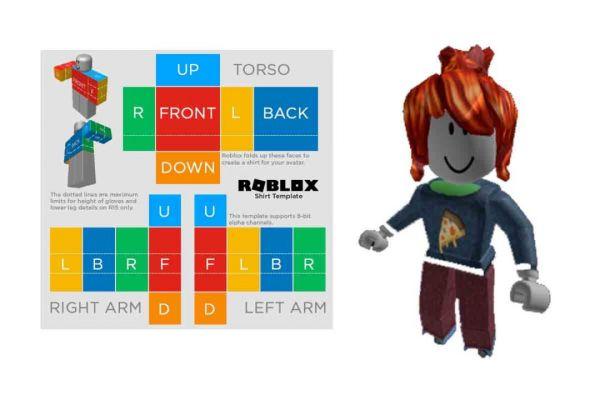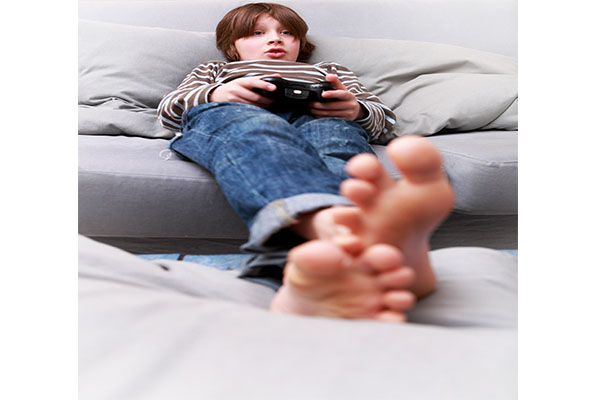
Cell phone addiction in boys
The current situation is paradoxical: although it now makes little sense to talk about "new technologies" for some tools that have entered the daily life of almost all adolescents and their families, currently the company does not seem to have yet been able to truly absorb the phenomenon.
Let me explain: the cell phone is no longer new enough to be an unknown object, but it is not yet old enough to have allowed the identification of consolidated strategies for its management on an educational and emotional level.
Then?
In short, it is necessary to put yourself in the order of ideas that each family that has to manage the use of the smartphone by their children is faced with a particularly difficult educational task because it is first of all a question of understanding which is the right path for oneself.
Cell phone addiction: symptoms
First of all, let's start from the idea that often when we talk about cell phone addiction in children we are talking about very different ways to use the mobile phone e, mostly, of very different reasons that push to use it. We will see that this second aspect, i.e. identifying the reasons that drive a teenager to use the cell phone a lot, is the fundamental one.
Even from a specialist point of view, to date there are still no globally shared definitions to identify cell phone addiction.
That would be an important thing: a precise definition of cell phone addiction would be helpful too
- to identify more clearly less problematic forms of a real addiction
- and to help parents navigate the daily difficulties of managing the relationship between teenager and smartphone.
We are not without points of reference, However.
What we can rely on is a series of observations, cues and signs that help us identify a certain use of the cell phone as problematic.
These symptoms of cell phone addiction are to be looked for first in the behaviors that are close to typical behaviors of addictions:
- The use of the cell phone, from this point of view, is a behavior sought after as gives pleasure and relief (gives satisfaction, distracts from problems and gives the feeling of solving them)
- but that becomes problematic as you can't control it (e.g. unable to reduce usage, or constantly thinking about mobile phone use)
- e it continues to be implemented despite the negative consequences.
- At the same time, one can develop a tolerance, i.e. the need to perform the behavior more often to achieve the desired feeling of pleasure/relief
- and when you are unable to use the telephone, you are likely to have strong feelings of anxiety, restlessness and irritability.
Other symptoms of cell phone addiction
In addition to the characteristics listed above, there are some physical signals useful for identifying such intensive use of the mobile phone as to suggest an addiction:
- digital eye strain: eye fatigue from using a digital device: red, itchy, tired eyes; blurred vision; heachache;
- cervical pains resulting from keeping the head tilted for a long time to look at the cell phone;
- increased frequency of diseases and ailments, deriving from continuous contact with the mobile phone (it must be kept in mind that on the surface of the mobile phones there is a large quantity of germs that can be easily transported from the hands to the mouth or, for example, to the eyes);
- the intensive use of the cell phone has often been linked to symptoms of psychological distress such as depression, anxiety and OCD and relationship difficulties.
This last point is particularly important, because it brings to mind two issues that are worth addressing explicitly:
- Is using a cell phone bad? In other words, is it a negative presence in the lives of adolescents that should be minimized?
- why are teenagers so attracted to their smartphones? If we care about fighting a cellphone addiction in kids, we have to first of all understand what drives them to assume dependent mental functioning (even before dependent behaviors).
Cell Phone Addiction In Teens: What Drives Them?
Let us first of all take up the question of the harmfulness of mobile phones.
The cell phone seems to be bad for some teenagers as it absorbs them, catalyzing their attention so pervasively that it leaves room for more.
Ma what teenagers do with smartphones does it really belong to a different and distinct world from that of commitments and relationships in the flesh?
At least in the first instance, it helps if we say no.
First of all, it is useful to take into account the fact that non-digital native adults and digital native children have quite different perceptions of technology.
The use of digital natives is more spontaneous, as if the various devices were a natural extension of their person.
[I am aware that the question is more complex than that, but it seems important to touch it at least a little to try to put yourself in the shoes of the teenagers we are talking about.]
The good and bad use of the cell phone
In TV series that realistically and effectively describe the lives of teenagers, such as SKAM Italia, the relationship between teenagers and technology is often in the foreground.
In this scene, for example, the girl speaking is reflecting on a difficult time when she pushed her friends away with her grumpy behavior. She (finally) came to the decision to talk to them, explaining why she misbehaved: she admits she was in trouble.
And how does it do it?
With a voice message, i.e. using the telephone.
There are several reasons to consider this good use of the telephone: the girl manages to express herself, hiding (but only a little) behind the telephone. The distance her voicemail allows her to keep from her also allows her to express herself sincerely and heartily and, eventually, to reconnect with her friends.
This way of behaving not only has gods non-technological equivalents with which many parents may be more familiar (letters, diaries left open, talking to a friend who goes and reports to the whole group, etc) but which have fallen into disuse, but it is above all a support for growth.
If it is used to talk about oneself and to resolve conflicts with peers, the cell phone helps the adolescent to grow.
The behaviors that are worth worrying about and thinking about addiction are others. But the roots are the same.
The cell phone usages we link to “teenage cell phone addiction,” that is, also originate in an attempt to use the cell phone to support one's growth. However, these are failed attempts.
Teenagers who use cell phones to grow up
What does it mean to use technology to grow?
La familiarity with the technology is important from different points of view for adolescents.
Many of the jobs that today's teenagers will go to do will be connected, at some level, to the use of technology and the internet. This is also true for those who will carry out jobs that apparently have little to do with this world: working in a shop or workshop already today means having to compete with those who have an online presence (website, portals, social networks). The more specialized the job, then, the more central this issue tends to be.
The aspects on which it is good that we focus here, however, are the psychological ones.
As we have seen in the brief example taken from the SKAM Italia series, technology (mobile phones in primis) have a fundamental psychological function in the daily life of adolescents.
The cell phone is a tool through which to regulate relationships with others and through which to get to know yourself, understand who you are; grow, indeed.
"Who am I? Am I breezy? Can I please others? Is there anyone else who feels like me? I'm normal?"
Video games, when they are not used for socializing (which is certainly truer today than twenty years ago), allow a boy to get to know each other, discovering his own tastes through active interaction with the game.
In the use of videos and texts found online, adolescents look for stimulating things that amuse or excite them, momentarily pausing the social world to concentrate on self-discovery through the comparison with the ideas they encounter, a stimulus for their own ideas .
As I said above, all these spontaneous strategies of using the cell phone to overcome fundamental tasks of adolescent growth they can work positively, but they can also go wrong.
… but in what sense, exactly?
Troubled teenagers
Very often it is more important to ask yourself what drives a boy to use his cell phone "badly", rather than to think that the cell phone has a negative influence on him.
The most important aspect of the cell phone's effect on such a teenager is that it brings his or her difficulties to light.
Approaching and moving away from others
One of the main fears related to what is perceived as a cell phone addiction in teenagers is the fear that the virtual dimension will distance them from the world of social relationships with peers.
Very often intensive use of the cellphone serves precisely the purpose of find what the adolescent perceives as an optimal distance from others (especially from peers).
With his cell phone he has the opportunity to observe them, often through a passive use of social networks or silent participation in whatsapp groups, and to establish relationships in which he can master his own level of exposure. Not surprisingly, many of these teenagers feel more comfortable a establish relationships through the mediation of video games. Of course, however, even these relationships have variable levels of emotional intensity and can be both very substantial from the point of view of emotional nourishment (for example when these adolescents ask to visit friends they met online) and represent opportunities for minimal contact, little more than formal.
In short, each case must be evaluated individually, and the question must always be: is my child managing to find his own way of establishing relationships or is he unable to socialize?
Socialization difficulties that originate from a negative opinion of oneself (low self-esteem) are, as I said, one of the main reasons that push young people towards cell phone addiction (or something similar).
But they are not the only ones.
Often intensive use of the mobile phone can be linked to need for isolation from family dynamics that the adolescent cannot handle.
This is a usage that is characteristic of teenagers who can't find a way to manage anger.
Here too, the mobile phone, like video games, is more than the cause of the adolescent's anger tool that the adolescent can use to try to manage their anger.
How? For example, for create a barrier between themselves and their parents, with whom he may feel so angry that he cannot talk.
Another example of a relatively frequent situation is one in which the adolescent sI isolate myself with the phone hoping to be looked for by a parent who speaks to him softly, bears him although it causes problems and approaches him without suffocating him. Obviously what happens in practice is that the tug of war between adolescent and parent becomes so tense that no dialogue is possible; the most important aspect, however, is that behind it there is a genuine attempt by the adolescent to make himself available for a dialogue.
(This does not exclude that the mobile phone contributes to accentuate, under certain conditions, the adolescent's anger. However, this is more a hiccup than the main cause of suffering involving adolescent, family and telephone.)
In short, we must not forget that the cell phone is used, in case of underlying emotional difficulties, above all as a tool to spontaneously try to solve a problem that the teenager doesn't know how to deal with.
If we just hate the phone, we risk losing sight of what it can tell us about the teenager who uses it.
And so what? What to do about cell phone addiction in teenagers
[Attempting to "detoxify teenagers from their mobile phones" is an operation that must take into account the emotional value that the smartphone has for a teenager: an aid in achieving goals and solving problems.][Video with subtitles]
“My son is always on his cell phone. It's something I can't stand. He hurts him and I wish he would spend his time differently."
Try to understand how to educate children to use the cell phone o, in case you think of an addiction, figuring out how to detox kids from cell phones are two very different situations, in reality.
La educational dimension is mainly related to:
- the management of usage rules, clearly displayed and (which is more tiring), constantly maintained. This does not mean excluding the adolescent from any possibility of dialogue on these rules: it means showing him that you have ideas about what you want from him and that you feel sufficiently secure in the idea that these are things that are done for his good to impose them.
- comparison with the use of the cell phone that the adults in the family make. How do you see using it? How often? In which situations is the cell phone prohibited (at the table, while watching a film, just before sleeping)? Setting an example is certainly difficult: the needs of adults and adolescents are different. But we must know that surely this comparison already exists in the mind of the adolescent child and therefore cannot be avoided.
- provide alternatives to cell phone use. What can he do? It is not so much a question of giving him ideas or asking him to do things: it is a matter of showing him once again what image one has of him, what is being asked of him and of providing him with proposals which he can accept or refuse, but which in any case contribute to shape his personality.
The educational dimension is in direct contact with the emotional-psychological one especially through education to frustration management, that is, the idea that, however unpleasant it may be, if you think you can always do what you want when you want it, you risk finding it difficult to find satisfaction in contact with the world.
The main aspect of the psychological dimension of the problem, however, is not this. When you think you need to detox or get your teen off their cell phone, chances are you already are a balance has been upset: that boy is using (/abusing) the cell phone in an attempt to overcome one of the difficulties of adolescence that make growing up more difficult.
In this case, the repetitive, obsessive, intensive use of the phone is a consequence of one open wound that the teenager tries to plug. It will be necessary to bear (within certain limits!) the bond he has developed with the telephone: it is a attempt at self-care.
What you will need to take care of, however, is to help him find a way to start tackling the problems he feels he can't deal with with more effective tools.
Basically, in adolescent psychotherapy, the job is precisely to help the boy get his growth back on track.
Is your child in trouble?
Find out what you can do






















